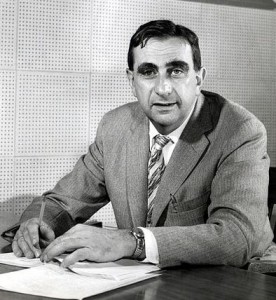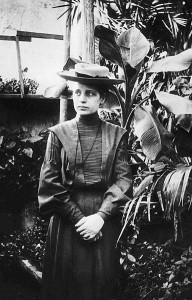Father of the Hydrogen Bomb
Edward Teller (1908-2003) was born in Budapest to a Hungarian-Jewish father and German-Jewish mother. He did not speak until age three, and was thought to be mentally retarded. However, he soon showed his true genius, and went on to get a degree in chemistry, followed by a Ph.D in quantum physics. Fleeing the Nazis, Teller made his way to England, then Denmark, and finally the United States, along the way working with some of the greatest scientists of the time, including Heisenberg, Fermi, and Bohr. With World War II in full swing, Teller wanted to contribute to the war effort. Together with Hans Bethe, he developed a shock-wave theory that was instrumental for missile technology. In 1942, he was invited to join the Manhattan Project and contributed greatly to the development of the first atom bomb, despite the fact that he already came up with a stronger “fusion” bomb, and insisted on developing the latter instead. In July of 1945, Teller was among the few who witnessed history’s first atomic blast. After the Soviets tested their first nuke, President Truman pushed for the development of Teller’s more powerful fusion bomb (aka the hydrogen bomb). By 1952, Teller was already known as “the father of the hydrogen bomb”. At the same time, Teller worked to develop nuclear safety standards, and researched meltdown-proof reactors. He would go on to serve as head of some of the finest laboratories in America, and founded the Department of Applied Sciences at UC Davis. Perhaps most significantly, Teller was instrumental in helping Israel develop its nuclear technology, visiting the nascent state 6 times in the span of 4 years, advising both military chiefs and prime ministers. He convinced the Israeli government not to sign the nuclear non-proliferation treaty, and was the one who later informed the CIA that Israel was in possession of nuclear weapons. Teller continued his research until his last days; his final paper (on thorium reactors) was published posthumously. His work led to breakthroughs in chemistry, physics, nuclear, and military technology. He passed away with a long list of awards appended to his name, including the Presidential Medal of Freedom.
Purim Begins This Saturday Night!
Words of the Week
In any moment of decision, the best thing you can do is the right thing, the next best thing is the wrong thing, and the worst thing you can do is nothing.
– Theodore Roosevelt


